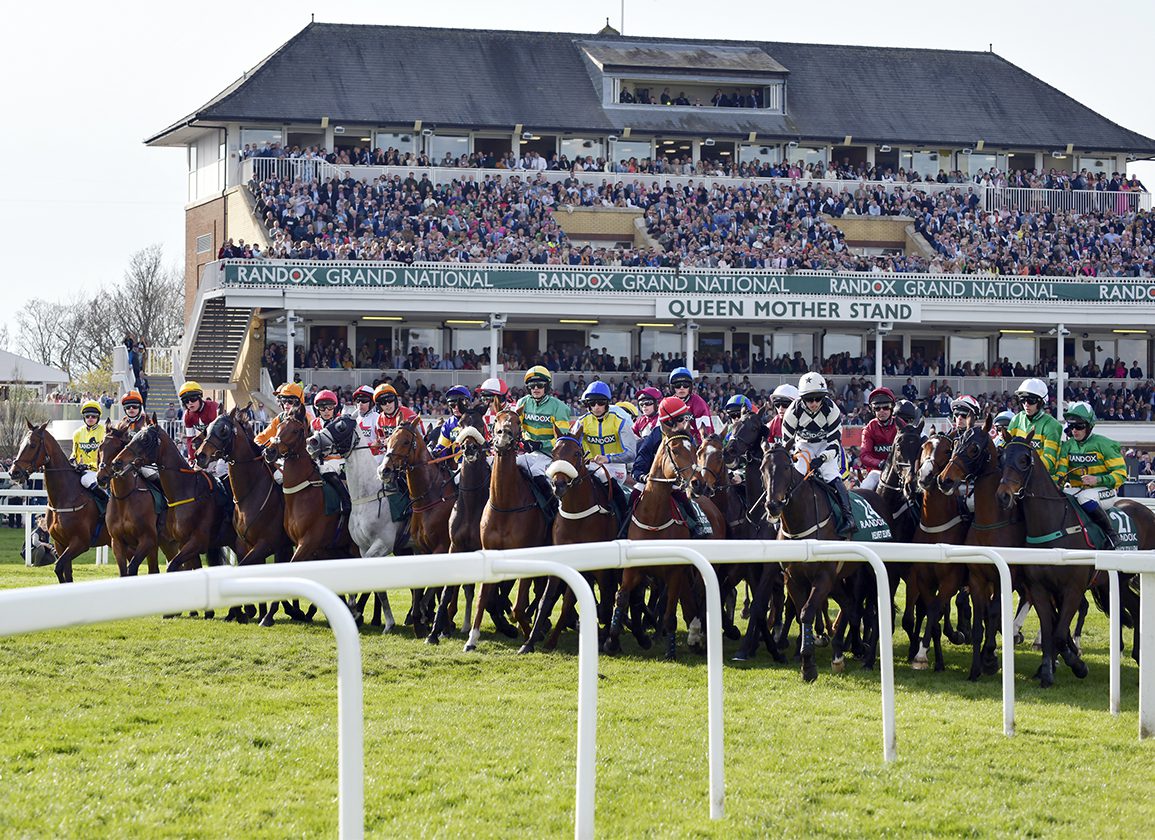As part of a “relentless focus on welfare”, the Jockey Club has announced a number of changes to the Randox Grand National, including reducing the maximum number of starters from 40 to 34.
Having canvassed the views of a wide range of racing industry stake-holders as well as World Horse Welfare, the Jockey Club has settled upon five key changes to the Aintree showcase, which will be run next year on Saturday, April 13. Last year's race was delayed by 15 minutes after protestors invaded the track. One of the runners, Hill Sixteen (GB), was fatally injured after falling at the first fence, an incident his trainer Sandy Thomson said was exacerbated by the heightened tension surrounding the delay.
Along with the reduction in the number of runners, the first fence will be moved 60 yards closer to the start line in order to minimise the horses' speed on approach to the fence. The start time of the race will also be brought forward in the day, and horses will no longer be led by a handler in a pre-race parade. Instead they will be released at the end of the horse walk to canter to post as is normal in other races.
Other changes including lowering the height of the eleventh fence by two inches, alterations to the running rail to assist with the capture of loose horses, and further investment in the track's irrigation system.
The mimimim handicap rating for runners will be increased to 130 (from 125).
Nevin Truesdale, Chief Executive of the Jockey Club, said “The Randox Grand National is the most iconic race in the world and one which transcends our sport. It is part of the fabric of British sporting life alongside the likes of Wimbledon, the FA Cup and the Open golf and is loved and watched by millions of people all over the world every year. For many it is also their introduction to horseracing and I believe that a competitive, fair and safe Randox Grand National is one of the best ways of ensuring the sport continues to thrive for generations to come and remains an important part of Britain's culture and economy.”
He continued, “That means our sport, like many other sports have done, needs to recognise when action needs to be taken to evolve because the safety and care of horses and jockeys will always be our number one priority. In making these changes at Aintree we are underlining our relentless focus on welfare and our commitment to powering the future of British racing.”
Not a subscriber? Click here to sign up for the daily PDF or alerts.






